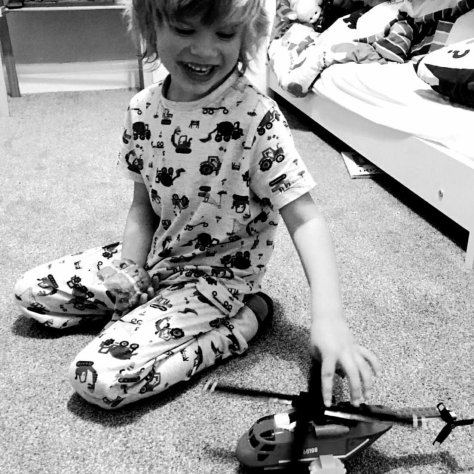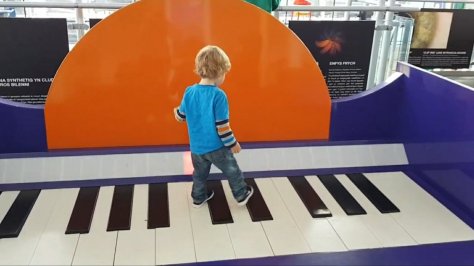I remember sitting on a hard chair, going through the motions, listening to the analysis of my son – the reports and information which had been collated on him.
We spoke about his delayed speech, his lack of interaction and his low levels of engagement. It was hard dissecting every level of my child. Documenting where he was behind. Discussing where he was not meeting the grade defined by the milestones of the standard parenting guidance.
Then the diagnosis came.
Autism Spectrum Disorder!
“So is he high or low functioning?” I asked. Wanting to know where he fell on this so called “spectrum” I had heard so often mentioned.
I wanted the paediatrician to stand up and draw a line on the whiteboard behind her and show me where my son fitted on this high-low continuum that everyone talked about. I then wanted her to point me to the books and guidance of how to approach it. I wanted the toolkit.
The toolkit however never came, and over months and years I had to gather it together myself. This was psychology, it was not math. It was not black and white. It was not a clear definition, just a recognition that my son had social and communication challenges. I had to work it out myself and through trial and error, find what worked in our situation.
I had to work it out because people are unique!
Every one of us is different. There is not one solution or magic handout that meets every set of circumstances.
To every person I met after that, I found myself saying “Rhys has been diagnosed with autism” but then I would promptly add “but he is high functioning!”
It was a statement (although not realising it at the time ) I was saying to make myself feel better. But it was also a sense of denial, where I was trying to ignore my son’s unique characteristics and didn’t want to accept the full membership into “Club Autism”
But in that one statement, I was separating autism from society and confirming that it was something that we had just scratched the surface of and didn’t want the membership into!
But even worse, it was a slap in the face for those who had greater challenges than us – or did they? I hadn’t paused to consider others and the extreme variances across the spectrum, or that some of my own son’s characteristics would be far more challenging than others.
So I stopped.
I started to learn more about autism, and that it was OK. It was new and I had a lot to understand, a lot to digest. But more importantly, I removed the words ‘High Functioning’ from my vocabulary.
My son is autistic. He has challenges in areas of speech, communication and perceptive language, but he has strengths in maths, a photographic memory, cuteness and laughter.
So from that point forward whenever someone asked me where my son was on the scale of autism, my response was that he was autistic. Nothing else. No high. No low.
It sounded strange, I was suddenly not justifying where he sat amongst the other autistics. But when I paused to think about it, I asked myself, “When was the last time I was asked where I fitted on the Neurotypical scale?” When in general conversation had I been asked how good or challenged I was against my peers?
If I had to answer and say “I struggle with faces and names” people don’t nod and tilt their head to the side, and give me a sad caring face with a reply of “Oh I am so sorry!”
Of course they don’t! So why should we treat our children that way?
We are all unique with our own strengths and challenges. So let’s remove “High Functioning” from our vocabulary and just see each other for who we are.
My son is autistic, and we are learning what works as we get through each day. Just like every other parent. Just like every other child.
Let’s stop pigeon holing each other.
Let’s remove High Functioning from our vocabulary and just be unique.
Let’s just be ourselves.
#erasetheword




